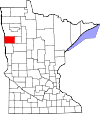Norman County Criminal Court hears all criminal cases in Norman County. Below you will find specific information about criminal cases and how they are handled in Norman County.
Where can I get help for my Norman County criminal case?
The 6th amendment of the United States Constitution provides a criminal defendant with the right to an attorney. As read in the miranda rights, this means that if a defendant cannot afford to hire a private attorney a legal attorney will be appointed to the defendant to represent him at no cost to the defendant. This is often a public defender. In addition, the court clerk for Norman County will also be able to provide general information about a specific criminal case. The clerk can only provide information and is not an attorney so they cannot provide legal advice, only a licensed attorney can provide legal advice about what the best options for are for your particular case.
What is Jury Deliberation?
After both the prosecution and defense have presented their cases, the judge in the case will provide instructions to the jury about what they must decide. The jury will be dismissed to the jury room where they will deliberate about the guilt or innocence of the defendant. After reaching a unaminous decision, they return their decision to the court where it is read aloud in the courtroom. If the jury is unable to reach a unaminous decision, the jury is deadlocked, also known as a hung jury, in which a mistrial will be declared.

Norman County Criminal Court
Norman County Required Court Appearances
In Norman County, there are both required and non-required court appearances for the defendant. At a required or mandatory appearance hearing, the defendant is required to appear in person before the court. Failing to appear at your required hearing may result in a bench warrant being issued for your arrest by the judge.
Right to an attorney
The US Constitution’s Sixth Amendment ensures the right to an attorney regardless of whether or not you can afford one. In Norman County a public defender will be appointed by the judge if you cannot afford private representation.
Appealing a guilty verdict
A defendant may appeal a guilty verdict to an appellate court. This is not a request to have another trial, but a request for an appellate court to review the case and determine that it was handled in a correct legal manner. There are a number of outcomes in an appeal including an upholding of the conviction, a finding that errors were made resulting in a retrial or resentencing or possibly a complete disimissal of all charges.
Norman County Prosecutor
For criminal cases in Norman County, the prosecutor will be a representative of Norman County. The Norman County prosecutor reviews all evidence and ultimately decides whether to file or dismiss charges in the case. Most of the time, the prosecutor has leeway in plea negotiations and determines how the case will be prosecuted.
Defendant Sentencing
At a sentence hearing the judge will inform the defendant of the sentence that will be imposed. This sometimes occurs at the same hearing in which the defendant is found guilty (either by trial or plea agreement). In can also occur at a later date, most often this is due to the complexity of the case where more time is needed to determine the appropriate sentence.
Plea Agreements
A Plea Agreement, sometimes known as a Plea Bargain is an agreement between the prosecution and the defendant, where the defendant pleads guilty or no contest often in exchange for a lesser charge or lighter recommended sentence. A large majority of criminal cases end in a plea agreement. In Norman County you can inform your attorney to negotiate with the prosecution to attempt to come to a plea agreement, but this is dependent upon the charge severity and also the prosecutors willingness to accept a plea deal.
Burden of Proof Requirement
In a criminal case in the United States, the burden of proof always requires the prosecutor to prove beyond a reasonable doubt that the defendant is guilty. This is a high threshold that must be met by the prosecution when presenting evidence in a case. If the prosecution fails in it’s burden to prove guilt beyond a reasonable doubt the judge must find the defendant not guilty. In a jury trial, the judge will inform the jury what this burden is and their obligation to find the defendant not guilty if they feel the prosecution did prove the defendant’s guilt beyond a reasonable doubt.
What happens in Norman County at an arraignment?
In Norman County the defendant is brought into court and informed by the judge of the charges that have been filed against them along with informing them of their rights. At this time, the defendant can plead guilty, not guilty or no contest. If the defendant pleads guilty or no contest, there will be no trial and the defendant may be sentenced immediately or at a later date. If the defendant pleads not guilty a trial date is set.
Right to Jury Trial
For “Serious Crimes”, those that can have a potential penalty of 6 months in jail OR a minimum $500 penalty, the US Constitution guarantees a right to trial by jury. This is guaranteed by Article III of the Constitution and the 6th Amendment. The accused has the ability to waive their right to trial by jury.
Where will Norman County criminal case hearings take place?
Criminal cases will take place at the criminal courts of Norman County. See here for the location of the criminal courts in Norman County.
Norman County Criminal Court Location
-
Norman County District Court
Address: 16 3rd Avenue East, Ada, MN 56510
Phone: 218-784-5458 Fax: 218-784-3110